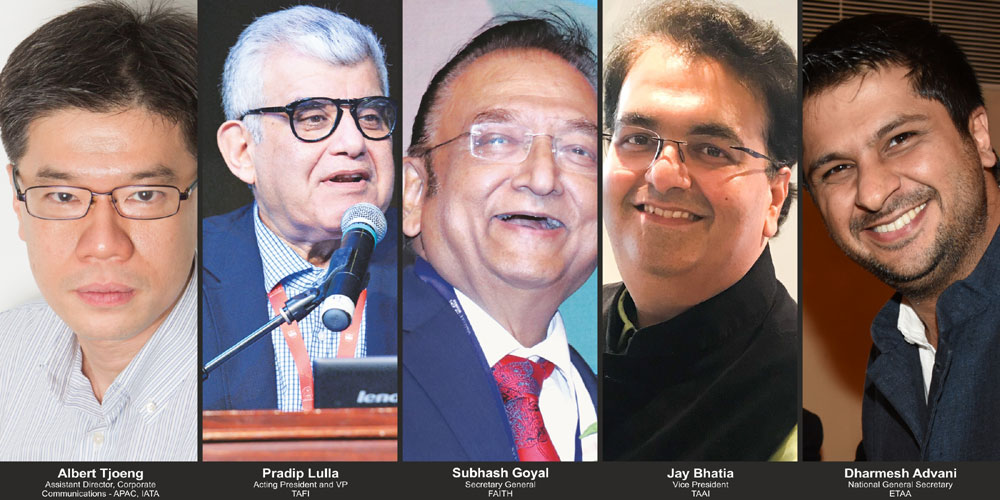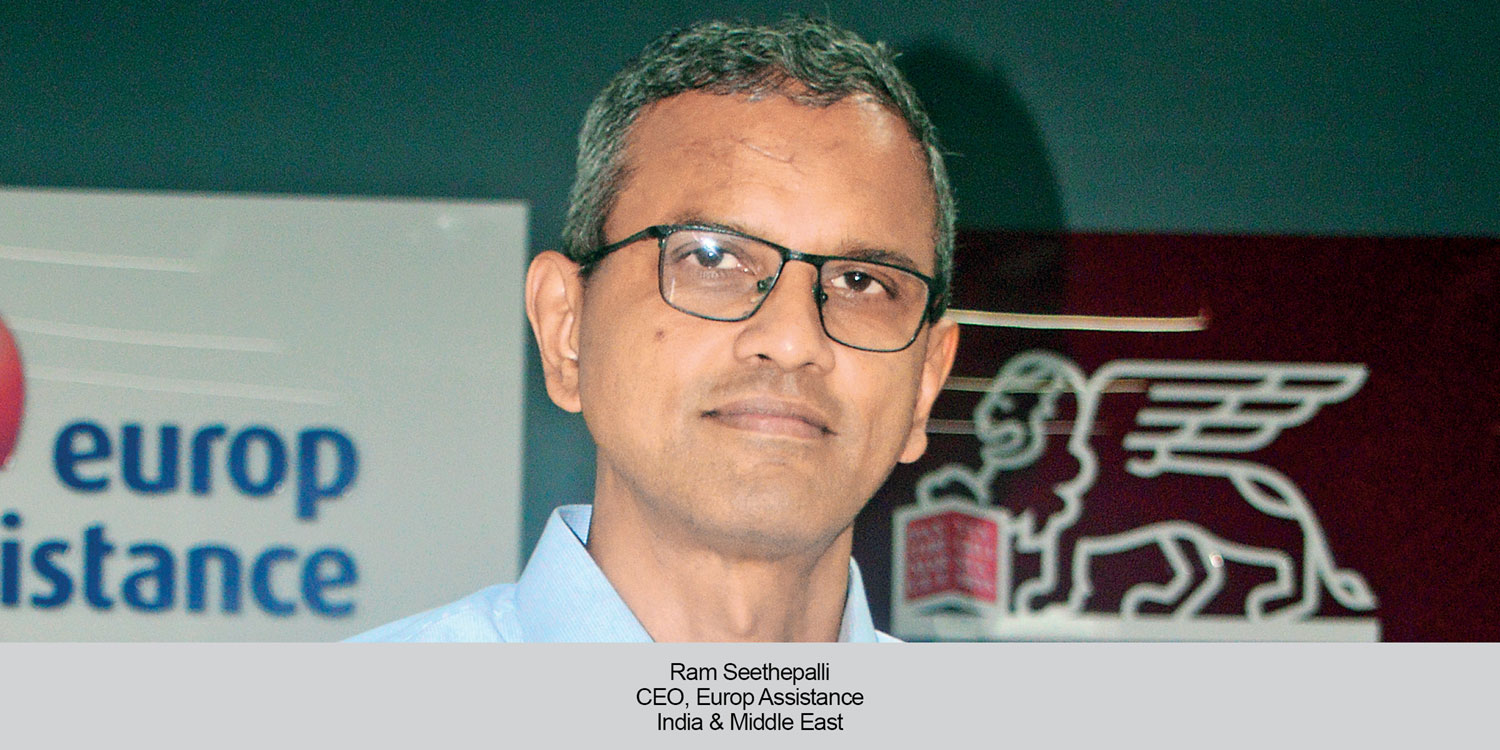That is the question a lot of the travel agents are asking themselves these days. TRAVTALK speaks to IATA as well as the various national trade bodies to get their perspective to help our readers make an informed decision going forward. FY2020 saw 97% renewal of accredited agencies in India: IATA
Hazel Jain
With air travel business down to almost a halt, many ticketing agents are questioning whether they should renew their International Air Transport Association (IATA) membership or not. Meanwhile, the period of agency accreditation for IATA is based on the calendar year. “So for the renewal that takes effect from January 1, 2021, agents will need to complete the renewal formalities, including making the fee payments, by the end of the year,” says Albert Tjoeng, IATA’s Assistant Director, Corporate Communications – Asia Pacific. Sharing details of the kind of membership that Indian agents have opted for this year, Tjoeng shares, “Almost 97 per cent of the accredited business locations in India renewed their accreditation for the 2020 calendar year. Of those, about 150 switched from the ‘GoStandard’ accreditation model to the ‘GoLite’ accreditation model. There are about 4,313 accredited agent locations in India, of which 2930 have GoStandard accreditation and 1383 have GoLite accreditation.” When asked whether IATA would look at reducing its membership fee this year considering the aviation landscape, he replies in the negative adding, “The fee for renewing the IATA accreditation, which is determined by the Passenger Agency Conference, remains unchanged. Agents are reminded to complete their renewal formalities, including the payment of the fee, by the end of the year in order to maintain their IATA accreditation.”
Why be an IATA-accredited agent?
- Access to IATA airline members with single Sales Agency Agreement, to sell international and or domestic tickets
- Access to the IATA BSP as an efficient interface for invoicing and payment between airlines and travel agents
- Recognition as a professional travel trade organisation
IATA obligated to serve agents?
If IATA does not play the role of a mediator between the airlines and agents, does it risk being irrelevant? Even though agents feel that it has leanings towards the airlines, membership to this community comes with its own set of advantages, or is being at the mercy of big consolidators for refunds from airlines the only challenge for non-IATA agents?
‘IATA has its benefits’ – Pradip Lulla, Acting President and VP, TAFI
Membership to the hallowed hallways of IATA comes at a price, but even as travel agents start to question its relevance in times of crisis such as this, it’s important to look at the benefits this membership offers agents.
Pradip Lulla, Acting President and VP, TAFI, feels that even though IATA agents are vehement about trading credit shells with refunds right now, they must look at the other side of the coin. “The IATA membership comes with a host benefits such as access to their platform and to the GDS systems. But most of all, the IATA stamp lends credibility to the agent. Being accredited as an IATA agent helps in getting our money back in cash from the airlines. This is because we can have a direct access to process refunds – either direct credit or filing a refund application and being in control of the refund process.” Lulla however adds, “IATA today must offer solutions to protect the agents’ money that could be lost due to closure of weak airlines via industry insurance. Else, the agents will rescind their membership.”
IATA offers two options to agents – GoStandard and GoLite. The GoLite accreditation option allows them to transact with airlines through BSP exclusively using the IATA EasyPay and card forms of payment. GoLite agents can benefit from IATA accreditation with fewer financial requirements and lower percentage of bank guarantee. Lulla adds, “The IATA platform is a great advantage to the participating airline with the global ratio in the range of 0.5% default. But airlines don’t take this advantage and give ticketing capabilities to maximum travel agents to garner more business with practically no risk.”
‘IATA is dying a natural death’ – Subhash Goyal, Secretary General, FAITH
Pointing out that IATA was created to give joint bank guarantees to member airlines, Subhash Goyal, Secretary General, FAITH, says, “Even under the aircraft act, it says that the agents must be compensated. The commission can be decided between the airlines and the agent. Unfortunately, this has not happened because I believe that the DGCA in India is not as strong as the DGCA in other countries. This means that apart from IATA, our government is also to be blamed partly.”
However, he claims, “IATA unfortunately is dying a natural death. By taking a backseat in terms of handling agents’ issues, IATA is committing suicide. Despite charging a hefty fee, it did not support the agents when airlines like Kingfisher and Jet Airways went bust. It is not just an association which is only for the airlines, but for the agents also. A bulk of the money being paid to IATA is from over a million agents across the world. The reason these agents joined IATA initially was to get commissions. Today, things like black-marketing of air tickets happen because agents don’t get commissions. If all agents start getting a commission of around five per cent, it would be a great move. We should pressurise the government that travel agents should be given commissions; else it is giving rise to unscrupulous practices. Another option is to increase the airfare by five per cent.”
Insisting that IATA should stand up for agent members, he says, “If IATA does not play the desired role of a mediator between the travel agent and the airline, then IATA is becoming irrelevant. That would be the biggest tragedy of aviation and the tourism industry.”
‘Basic IATA features must be free’ – Jay Bhatia, Vice President, TAAI
Due to the pandemic, IATA’s billing and settlement plan (BSP) has failed. The time has come to revise it and ensure a complete change in the Resolutions of IATA. Unfortunately, the laws are one-sided. Financial securities are obtained by IATA on behalf of the airlines for agent defaults, but no securities for defaults/winding-up of the airline members of IATA. It should be noted that over the years the agent default has come down to 0.0008 per cent – approximately Rs 30 lakh only as against sale of over Rs 42,000 crore (in 2019) by accredited agents under BSP. Compare this over Rs 8,000 crore lost by agents due to the shutdown of Jet Airways alone.
IATA, on the directions of the administrator of the government, appointed on NCLT matter of the airline could only pay back eight per cent of the total value of the claim. This has hit our trade badly. Even the traveller has been affected.
Basic features must be given free to all accredited agents. We have appealed to IATA directly as well as through UFTAA to ensure a win-win situation for all. International carriers do not follow the law of the land (India) citing global IATA norms, which is not true. Even after coming on a common platform, airlines are revising their policies and not following universal policies as per the Resolutions.Yes, the IATA annual fee is very high and TAAI has already appealed to IATA seeking its reduction. TAAI has also appealed on the matter of commission with MoCA by demanding minimum five per cent on the total airfare from all airlines.
‘Non-IATA is the way to go’ – Dharmesh Advani, National General Secretary, ETAA
Members of the Enterprising Travel Agent’s Association (ETAA) include travel agents and companies who sell products such as tours, cruises, hotels, car rentals, etc. We at ETAA want to give every travel agent a chance to be a part of an association. When we started this association, the non-IATA members had nowhere to go. Hence, to support these agents we started allowing non-IATA members also. Further, our members are mainly those running mom-and-pop organisations working mainly for the passion of travel. As the commission on air tickets today is negligible, it only makes sense to issue tickets through big consolidators and concentrate more on tour packages. Hence, it does not make sense to pay high membership fee to IATA.
The only challenge is that a non-IATA agent is at the mercy of big consolidators for refunds from airlines.
There is also a lot of investment that needs to done. These investments are not practical in today’s world. We encourage our members to register for IATA TIDS which is much cheaper and provides a unique identification code, recognised by airlines and most travel industry suppliers, such as hotels and car rental companies, and their electronic reservation systems worldwide. ETAA has around 800 members pan India today.
About ETAA
The Enterprising Travel Agent’s Association (ETAA) represents the non-IATA retail tour operator in India. It is the largest association of non-IATA travel agents in the country and probably the world.
 TravTalk India Online Magazine
TravTalk India Online Magazine





